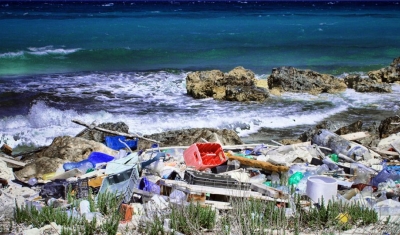Students Address the Role of Transitional Justice during Conflicts or Early Post-Conflict Situations


Geneva Academy
10 January 2019
During one semester, as part of the course on transitional justice in practice given by Thomas Unger and Firouzeh Mitchell, students of our MAS in Transitional Justice, Human Rights and the Rule of Law (MTJ) formulated policies to tackle one of the most challenging questions in transitional justice (TJ) work today: what is the role of TJ during conflict or early post-conflict situations?
Finding Solutions and Answers to a Key TJ Issue
As was highlighted by the previous UN Special Rapporteur on Transitional Justice, Pablo de Greiff, successful TJ initiatives have to tackle the issue of how to ‘increase the effectiveness of the measures when implemented in post-conflict contexts and to redress abuses and violations that frequently take place in contexts where institutions are affected by various forms of weakness’.
‘The Special Rapporteur underlined that serious thinking is needed on this issue and this is exactly what we addressed in this course, via classes and exercises that put students in very concrete situations where they have to develop their own solutions and proposals’ stresses Thomas Unger, Co-Director of the MTJ.
‘With this focus on TJ in situations of conflict we aim at developing the practical skills of our students and bridge the gap between theory and practice’ he adds.

From Support to Victims of Sexual and Gender-Based Violence to the Reintegration of Child Soldiers
Taking this as a starting point, students have been working for one semester in six mock NGOs groups to find some answers on what could be done to support TJ in highly complex contexts.
The six NGOs had different mandates and addressed key issues like displacement, the reintegration of child soldiers, how to strengthen victims’ networks, how to better support victims of sexual and gender-based violence, measures to change systematic discrimination against Lesbian, Gay, Bisexual, Transsexual and Intersex communities in early post-conflict stages, or the role of economic, social and cultural rights in TJ processes.

Support by Leading TJ Practitioners
Students received valuable and hands-on input from different TJ practitioners throughout the semester.
‘We are very grateful to the TJ Institute at Ulster University, the International Criminal Court and the Center on Conflict, Development & Peacebuilding of the Graduate Institute, as well as the Dutch-based NGO Impunity Watch for their constant support to our students’ stresses Thomas Unger.

Development of Policy Proposals and Presentation to a TJ Task Force
In their final policy proposals, students elaborated on topics that are of high relevance in conflict and early post-conflict setting, such as documentation, security and protection, victims’ participation, gender and reparations.
‘The level of creativity students showed during the practical exercises was breathtaking. Students were able to break down complex issues into concrete policy proposals for change on the ground’ says Thomas Unger.
In a final session, students presented their policy proposal to a task force on TJ. The task force was composed of three experts coming from different backgrounds relevant to TJ, such as civil society, government and international organizations. A recurring message that came out of the presentation by students was that even in complex situations something can be done to lay the ground for justice. A key recommendation from students was that bottom-up approaches should be preferred to highly technical top-down interventions. Students also stressed that it is essential to link justice with other activities such as psychosocial support or assistance in order to make early on a real difference for victims.
‘The product of our student’s work is highly promising and we would like to make it available to a broader audience. Please find below the links to the different policy proposals. They are work in progress but we hope that they will be a source of inspiration for others working in the field’ underlines Thomas Unger.
The Six Proposals
- Policy proposal by Rebuild – a local NGO working on disarmament and the reintegration of ex-combatants of armed non-state actors – which focuses on the reintegration of child soldiers, a highly relevant issues for TJ in early post-conflict situations.
- Policy proposal by the Victims and Survivors Network Initiative – a local NGO providing support to victims and survivors of serious human rights abuses – about the need to think early on about the creation of victims’ networks, one of the key challenges in TJ processes, but essential to build legitimate TJ processes.
- Policy proposal by Action for ESCR: Change is Now, an international NGO working on economic, social and cultural rights, a topic that is often under-represented in TJ, in particular at the early stages where the focus is often narrow on addressing civil and political rights violations.
- Policy proposal by Stand with Humans – an international NGO working on sexual violence – to address sexual violence as a priority in TJ processes today. Support is, however, often limited to the prosecution of rape cases. Stand with Human takes an innovative approach, looking at the broader gender dimension of these violations.















